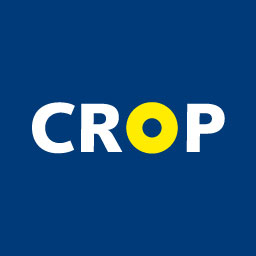The work-related costs scheme (werkkostenregeling, WKR): insight and application
The work-related costs scheme (WKR) is a tax scheme that has been mandatory for all employers in the Netherlands since 2015. This also applies to foreign employers with employees working in the Netherlands.
The basic principle of the Dutch Wage Tax Act is that everything you provide, reimburse, or make available to an employee is considered taxable wages. However, under the WKR, employers can provide certain allowances and benefits to employees tax-free, as long as they fall within the scope of the scheme. The WKR determines which parts of wage costs are taxable, which parts are tax-exempt, and which part can be allocated to the discretionary budget, known as the “discretionary budget.”
How does the WKR work?
As an employer, you may provide tax-free allowances. However, the total value of these allowances must remain within the discretionary budget (free space), which is calculated based on the total taxable wage sum of all employees.
Discretionary budget
Within the WKR, a certain amount, the “discretionary budget”, can be spent tax-free on allowances and benefits for employees. The free space is determined based on the company’s total taxable wage sum: 2% on the first €400,000 and 1.18% on the excess (for 2025).
If the total designated tax-free allowances exceed the discretionary budget, an 80% final levy must be paid by the employer on the excess.
Targeted exemptions
In addition to the discretionary budget, the WKR includes targeted exemptions. These are specific allowances, benefits, and provisions that qualify as wages but can still be granted tax-free without affecting the discretionary budget, provided they are properly designated in advance. Without a plausible designation, the exemption does not apply, a free assessment of evidence applies in this case. An example is the travel allowance for private transport, up to a maximum of €0.23 per kilometer (2025).
Nil valuations
Certain workplace provisions fall under the nil valuation rule, meaning they are valued at €0 and do not count against the discretionary budget. This only applies to in kind benefits, not cash payments. Examples include occupational health and safety provisions at or outside the workplace and non-meal refreshments at the workplace.
Intermediary costs
Intermediary costs are expenses advanced by the employee on behalf of the employer, directly related to business operations. These are not considered wages and therefore fall outside the scope of the WKR. Examples include fuel costs for a company car, business gifts, or in specific cases, parking expenses.
Formal requirements for designation under the WKR
In principle, all allowances, benefits, and provisions are treated as taxable wages for the employee. Only if you choose to designate them as WKR wages can you apply a targeted exemption or include them within the discretionary budget. This designation must occur before the allowance, benefit, or provision is granted.
In addition to advance designation, the designation itself must be customary. This means the allowances or benefits should not significantly exceed what is considered customary in similar circumstances.
To assess what is considered customary, a comparison must be made with similar employees in comparable roles. Because this is often difficult, the Dutch Tax Administration applies a practical threshold: total reimbursements of up to €2,400 per employee per year are generally considered customary. For targeted exempt benefits, it is assumed that they are customary regardless of amount, as long as the conditions for exemption are met.
Key considerations for employer
- Administration: maintain a clear record of all allowances, benefits, and provisions, and ensure they are properly designated and documented. The value of benefits and provisions is generally based on the invoice amount including VAT.
- Coordination: ensure effective coordination between departments involved in the WKR (such as HR, finance, and payroll).
- Customary test: take the customary test into account when designating benefits and allowances under the discretionary budget.
- Annual reconciliation: prepare in advance for the annual reconciliation and any potential final levy.
Making optimal use of the WKR
The way in which allowances and benefits are granted to employees and whether this occurs at the workplace or elsewhere, can affect how they are valued for tax purposes under the WKR. This means there are various ways to optimize the use of the WKR and make the most of the discretionary budget. We are happy to share some opportunities in this article.
Curious about these and other opportunities? Want more information or have questions? Please contact Heleen Goeting or your designated CROP advisor.

